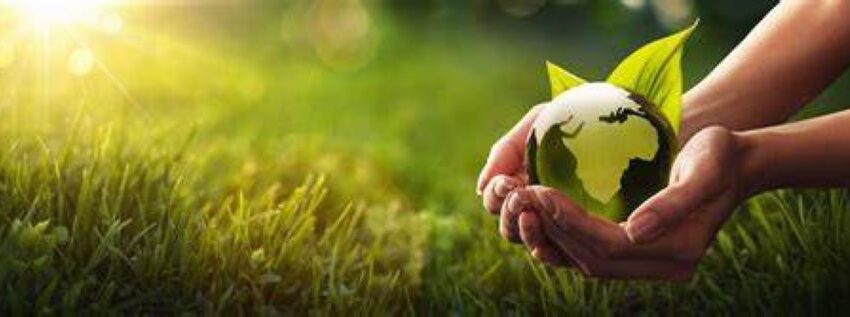WORLD ENVIRONMENT DAY Sustainable development is the need of the hour

Team L&M
This June 5 (World Environment Day), let us look for ways to shift our consumption pattern and lifestyle towards sustainable alternatives. Rather than having only development, let us have sustainable development with low ecological footprints.
While people’s values, expectations and aspirations for future must be taken into account to develop strategies for consumer engagements, nothing should happen at the cost of environment. We, humans, have already done enough to damage our living habitat. Let us now put a stop to it.
Developing a sense of connectivity towards nature as our own family is the key to reach sustainable development. And this cannot be achieved only by government efforts. We, the people, have to be equal participants in it all.
And it is heartening to note that people are rising to this cause. Everyone is alarmed — be it corporates or retail outlets, students or residents’ welfare organisations. Here we bring you a list of green initiatives that go with this year’s theme of Beat Plastic Pollution:
Following the UN theme for World Environment Day 2018, Swajal, the solar-powered water purification system, has installed over 430 water ATMs in 14 cities across the country, impacting over two lakh people. As many as 30 water ATMs have been installed in government schools in Delhi, 40 at railway stations and 20 in Sarojini Nagar area.
212 All Day Café has gone a step further. All its outlets use locally-sourced ingredients, and there is a strict ban on artificial colours and flavours. Further, the cafes serve RO-filtered house water, not bottled water to its guests. As a policy, no plastic cutlery is used and bottled water and straws are presented only on request.
Chai Point’s, a chain of tea cafes with 100 stores in eight cities across India, is launching paper straws in all the cities they are present in – Delhi-NCR, Bangalore, Pune, Hyderabad and Mumbai. It uses bagasse-based plates and glasses. Bagasse is made from sugarcane, a 100 per cent biodegradable material. Further, the bottled beverages sold by Chai Point are glass bottles only.
Eatery Hello Green minimises its footprint by supporting small, sustainable farms that provide their best produce and adopts practices like using electric bikes for deliveries and recyclable food boxes. It also holds Green Yatra to spread awareness about importance of planting trees to create a green, pollution-free planet.
Coffee major Tata Starbuck has launched Starbucks Bring Your Own Tumbler programme. Under this programme, customers will receive Rs 10 discount when they bring in their own personal tumblers to have coffee at the outlet. Other green steps include biodegradable and compostable serveware and elimination of paper receipts.
Roadster by Myntra has launched Green Jeans, thus becoming the newest among the apparel manufacturers in India that are working on creating sustainable fashion. Roadster’s sustainable practice isn’t limited to the garment manufacturing stage alone, but extended to how the product is used as well. The company uses 50 per cent sustainable materials or processes like use of organic cotton that reduces water consumption by 71 per cent alongside recycled polyester that takes 30 per cent less energy and can be reused and recycled again and again with no degradation of quality thus minimising wastage.
It also encourages consumers to recycle and reuse old clothes either by donating them or creating something new through DIY projects. What’s unique is the packaging is done with bio degradable plastic and denim duffle bag and plant able shopping bag (a unique shopping bag that can be torn and planted to grow plants).
Each of these individual initiatives are important as it is only through effective collection and recycling can we achieve an overall reduction of waste, cost, and energy consumption, and also effectively reduce greenhouse gas emissions.
As per a TERI paper on Opportunities and Challenges of Plastics Waste Management, the annual average per capita consumption of plastic in India is about 11 kg. Households generate maximum plastic waste, of which water and soft drink bottles form a large number, it says.
In terms of plastic in water bodies, seas near Mumbai, Kerala and the Andaman & Nicobar Islands are among the worst polluted in the world. The plastic debris under water affect, at least, 267 species worldwide including 86 per cent of all sea turtle species, 44 per cent of all seabird species, and 43 per cent of all marine mammal species.
The need of the hour is to promote the use of biodegradable plastic, especially in high-end large-scale applications, which can help in pushing bioplastics from labs to markets, the paper says.

